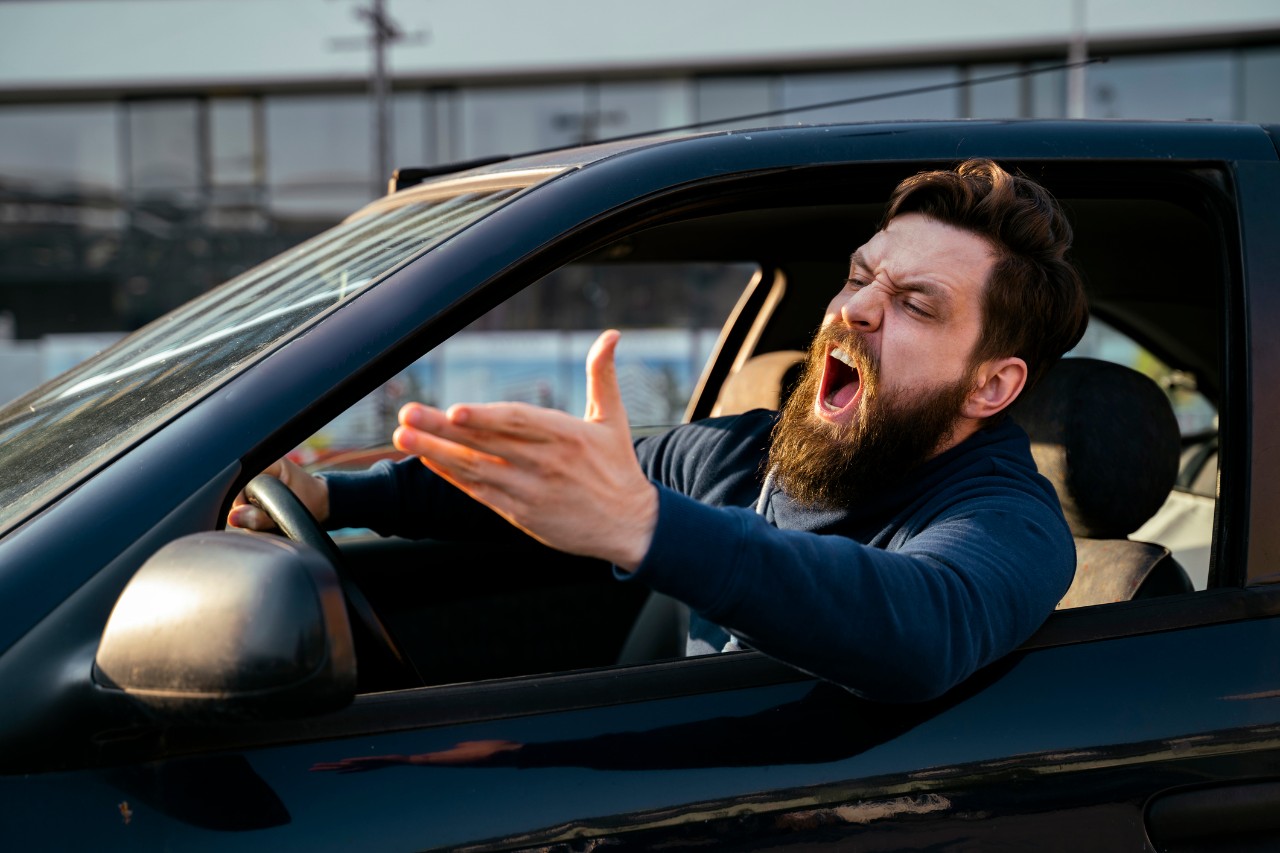
UC study unveils effect of bumper stickers on drivers
Polarized politics are following people to apolitical settings
Spectrum News and other news outlets across the country highlighted findings by University of Cincinnati researchers that found that political polarization is seeping into apolitical activities — like driving.
UC College of Arts and Sciences Assistant Professors Rachel Torres and Ben Farrer said survey respondents who watched a driving simulation in which the motorist ahead of them cut them off in traffic were more likely to honk if the offending vehicle had a political bumper sticker, particularly one for the opposing party.
They conducted attitude surveys with paid volunteers who then took part in a short driving simulation. In half of the simulations, another vehicle cuts off participants without signaling. The offending vehicle featured either no sticker or one of three bumper stickers: “Proud Democrat,” “Proud Republican” or the neutral “I love my dog.”
“It activated their partisan hostilities,” said Torres, who teaches political science in UC’s School of Public and International Affairs.
The study was published in the journal Frontiers in Political Science.
Featured image at top: UC researchers found that polarized politics are following people into apolitical settings like driving. Photo/PhoenixNS
93.1FM—WIBC: Is that bumper sticker making you angry?
ABC-6 Columbus: Study: Political bumper stickers may fuel road rage
Study Finds: Political bumper stickers are making traffic more dangerous
Phys.Org: Politics may follow you on the road
Related Stories
Clifton Court Hall grand opening garners detailed media coverage
September 20, 2023
The University of Cincinnati celebrated the opening of Clifton Court Hall on Tuesday, Sept. 19, with a ribbon cutting, attended by approximately 200 administrators, faculty, staff and students. The event was covered by multiple media outlets.
INSIDER: Here's everything TikTok says it's doing to fight misinformation
August 18, 2022
Business Insider article on TikTok's new policies to confront misinformation cites UC social media expert Jeffery Blevins
USA TODAY: Fact check: Identical injured dog posts are a viral scam
October 21, 2022
UC social media expert cited in USA Today explains how social media posts can be replicated to see who might be vulnerable to sad stories such as a dog getting hit by a car. Use caution and verify posts through outside sources, says Jeffery Blevins, professor and head of UC's Department of Journalism.
